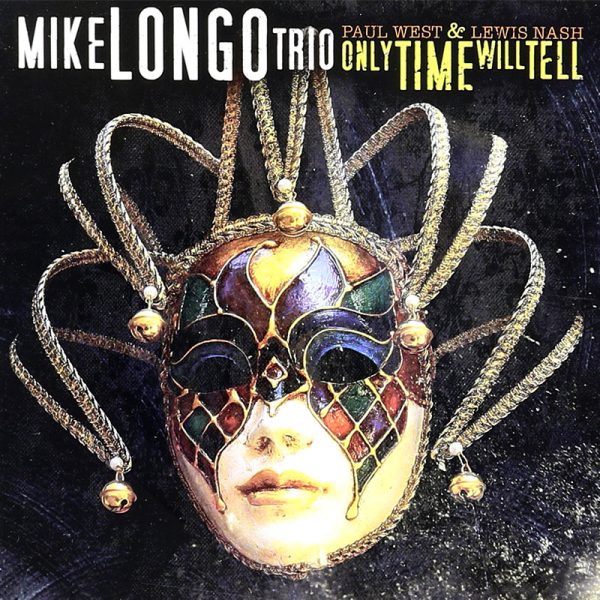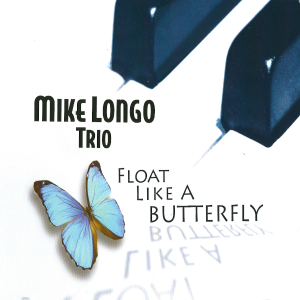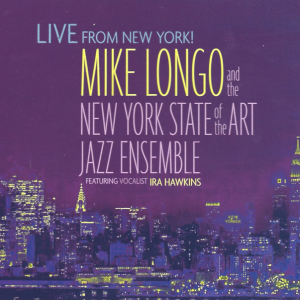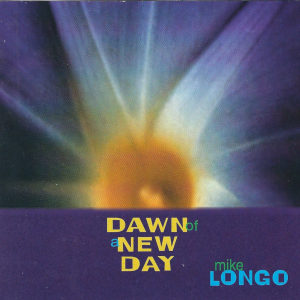“The next night I fell on my butt as a player. The first night I was inspired so much just playing with him, but the next night I said, ‘Oh, damn. You gotta come up with this level every night?’ He said, ‘What the hell you think I’m paying you for?’ I had this reality shock of ‘Oh my God! I’ve got a lot of work to do.’ The rest of my life up to this point has been working on achieving and maintaining that level.
“Nobody really knows about the tune ‘Just a Thought.’ I had been carrying it around in my head all these years. After Dizzy passed, I wrote a lead sheet and sent it over to Lorraine [Gillespie’s widow]. I told her to send it in and get a copyright.”
Longo is joined on Only Time Will Tell by bassist Paul West and drummer Lewis Nash. West had done two stints with Gillespie—in the ’50s with the trumpeter’s big band and again in the ’60s with the quintet that included Longo. Nash had worked with Gillespie on several occasions in subsequent years.
“Paul West has got one of the best bass lines in the business,” the pianist says. “He plays bass melody and is pretty much contrapuntally perfect. And he’s able to play in the cracks and make it sound right. Instead of playing right on a downbeat, he might play on the and of one, and it becomes part of a melodic phrase that’s in perfect contrapuntal harmony with the main line of what the piano is playing. We have the same rhythmic concept because of our experience with Dizzy.
“Lewis Nash is more than just a drummer,” Longo adds. “Not only is his time so perfect that you can set your watch to it, but his concept of rhythm is exactly the same as mine. He’s a very polyrhythmic player. He’s one of those cats who, like when he’s got to play a solo, is aware of what’s coming right after him and what came right before him.”
The first of the 13 tracks on Only Time Will Tell is a buoyant samba treatment of “Tomorrow” from the musical Annie. It’s followed by the bossa nova-propelled Longo original “Stepping Up,” which was inspired by the terraces on Mount Carmel in Haifa, Israel, that lead to the world headquarters of the Baha’i Faith, of which Longo is a member.
“That’s what I was thinking about when I was writing it,” he explains. “The steps in a music sense are alternating major and minor seconds. It’s like a cycle of seconds until it gets to a certain point.
The trio plays two Thelonious Monk tunes—“Nutty” and “Brilliant Corners”—on the CD. “In the sense of jazz concepts, it don’t get no better than Monk,” Longo says. “Dizzy used to call Monk ‘the Maharaja of jazz.’”
The trio takes “Brilliant Corners” at a considerably slower clip than usual. “I felt like really getting down into a blues pocket on it,” Longo explains. “That tune just strikes me as laying better there.”
“Bohemia After Dark” was penned by bassist Oscar Pettiford. “It’s got a hell of a groove on it,” Longo says of the song.
Longo wrote the CD’s gently waltzing title track while watching a documentary on Lyndon Johnson. “He was really a good man, but everybody hated him at the time,” Longo says of the late President. “I started feeling sorry for him and went to the piano and wrote it. It’s sort of poignant because it’s in minor and then all of a sudden it’s got a major ending. People associate minor with sad and major with happy. The point of the title is that after the passage of time, things may appear different than when you originally perceived them.”
Another Longo composition, “Why Not Me,” is, he says, “an intervallic piece. It’s really based on fourths, but one of them is inverted, so you’re really playing a fourth and a second.”
The Jimmy McHugh standard “Exactly Like You” is uniquely delivered at an ultra-slow tempo, while the Heinz Eric Roemheld composition “Ruby” from the 1952 motion picture Ruby Gentry gets an unusual swing treatment.
Longo wrote and recorded “Conflict of Interest” for I Miss You John, a 1994 quintet album dedicated to Gillespie. “I used to call him John,” the pianist says. “I didn’t call him Dizzy. We were very close friends. I’d never played it as a piano number before.”
Only Time Will Tell closes with an absolutely gorgeous reading of Eubie Blake’s “Memories of You” from the Broadway show Lew Leslie’s Blackbirds of 1930.
The son of a band-leading bassist father and a church organist mother, Michael Longo Jr. was inspired as a child by boogie-woogie pianists Sugar Chile Robinson in his native Cincinnati, and Jack Fina later in Fort Lauderdale, where the Longos had moved when he was in the third grade. While in Florida, Longo was later inspired by jazz piano master Oscar Peterson, with whom he would eventually spend six months studying privately.
Mike Jr. joined his dad’s club-date band when he was 15. On his son’s recommendation, Mike Sr. hired local African-American alto saxophone-playing high school music teacher Julian “Cannonball” Adderley for the band.
“My dad had a gig playing for the Gateway Shopping Center.” Longo remembers. “Cannonball walked up on the bandstand, and a hush came over the audience ’cause they had never seen a mixed band. Cannonball started playing ‘Stars Fell on Alabama,’ and he just melted everybody’s hearts.”
Longo graduated in 1959 with a bachelor’s degree in classical piano from Western Kentucky University. While there, he went on the road for a summer with saxophonist Hal McIntyre’s swing band and played bebop on weekends at an after-hours club in Nashville with country guitarist Hank Garland. After graduation Longo toured for two years with the Salt City Six. The Dixieland sextet was playing at the Metropole in New York City when Gillespie first heard Longo.
“You got something against bebop?” Longo recalls the trumpeter teasing him for playing in a Dixieland band.
Longo left the Salt City Six when the Metropole hired him as a house pianist, playing two six-hour shifts, from 2 to 8 p.m. with such jazz veterans as Coleman Hawkins and Cozy Cole and from 10 p.m. to 4 a.m. with trumpeter Henry “Red” Allen, with whom Gillespie again heard him.
Longo was hired by Gillespie in 1966, replacing Kenny Barron as pianist. After a year in Gillespie’s quintet, he was appointed musical director. “I had to do the hiring sometimes and the firing sometimes and calling rehearsals and writing the music and that kind of thing,” the pianist says of his duties.
Longo made eight albums with Gillespie, beginning with Swing Low, Sweet Cadillac in 1967, as well as several films of live Gillespie performances. He has also recorded with Astrud Gilberto, Lee Konitz, Buddy Rich, and James Moody, to name a few. Twenty of Longo’s own 26 albums have appeared on CAP, a musicians’ cooperative label he manages with his wife. The CAP catalog boasts some 150 releases, including a four-CD set of Gillespie’s band, with Longo on piano, recorded in 1973 at Ronnie Scott’s club in London.
Since January 6, 2004, the 11th anniversary of Gillespie’s death, the prolific pianist has presented concerts featuring various well-known jazz artists as well as up and coming musicians every Tuesday night in the John Birks Gillespie Auditorium in the New York City Baha’i Center to honor Dizzy, who was also a Baha’i. He presently leads three different groups: the 17-piece New York State of the Art Jazz Ensemble (with four CAP CDs to its credit and 170 of his own charts in the band book), the six-member Mike Longo Funk Band (playing material from his three fusion albums for the Mainstream, Groove Merchant, and Pablo labels in the ’70s), and the Mike Longo Trio.
Only Time Will Tell, the trio’s CAP release, stands as an uncompromising example of how three master musicians achieve seemingly telepathic interplay within the time-honored jazz traditions to which they’ve dedicated their lives.






